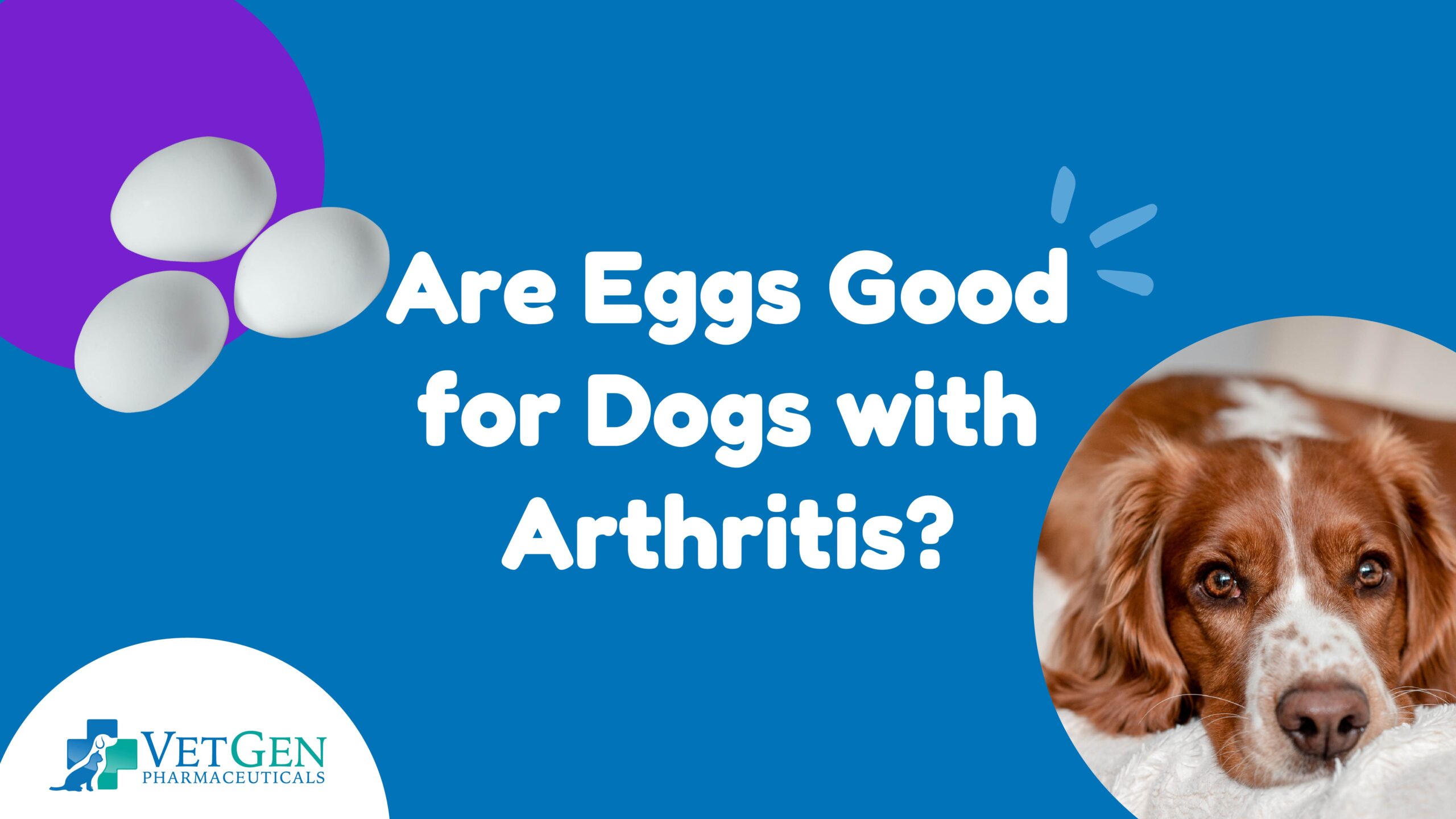Well, very small amounts yes, because of high Quality proteins,omega 3 and a variety of vitamins and minerals helpful for arthritis. It is the protein that calories’ and essential nutrients’ source that are efficacy for the treatment of arthritis and joint diseases.
What's Arthritis in Dogs?
Physical activities set off immediate pain in dogs with arthritis with every swollen joint restricting their freedom of movement to a great extent. It looks like a nice animal, it gets all stiff and sore from several joints. As with most things in dogs, it is quite frequent, however, more so at older ages of the dogs.
There are different kinds of arthritis in dogs, these include:
Osteoarthritis is the most prevalent sort. It’s simply wear and strain on the joints. Consider it the canine equivalent of becoming creaky and stiff with age.
Rheumatoid arthritis: This is a rare form of immune-mediated disease where the dogs own immune system turns against their joint tissue. Yeah, not pleasant at all.
Spotting the Symptoms
How can you know if your dog may have arthritis? Look for clues such as:
- Having trouble getting up from lying down.
- Not as excited to jump or run.
- Limping or favoring specific legs.
- Acting grumpier (wouldn’t you, if you were in pain?)
Figuring It Out: Diagnosis
If you think your dog has arthritis, the vet will be your best friend. Start by analyzing symptoms and how your dog has been behaving. Examining the dog, particularly the joints, to discover if they are sore or stiff.
X-rays or other joint imaging might be required to gain a clear picture. Blood tests are occasionally performed to ensure that nothing else is wrong. It’s all about understanding why your dog isn’t their typical, exuberant self.
Are eggs good for dogs with arthritis?
Not only are eggs a common breakfast food. It is beneficial for people, dogs, and other wild creatures that consume meat since it is high in proteins, fats, vitamins, and minerals. The ingredients found in eggs would assist dogs with arthritis or other joint-related health issues. Eat eggs so that the nutrient value of the dogs will help in easing pains due to arthritis, acquisition of toned muscles, and the general health of the dogs will be boosted.
Let’s break down the nutritional profile of eggs and how each component benefits dogs, especially those with arthritis:
Proteins
Proteins are well balanced and complete in the eggs, which means that the egg contains all the necessary acids that the dog needs.
These proteins which include the actin serve to regenerate the tissues especially the muscles around the joints. The movement of the muscles required by an arthritic patient can help to bear the load of the bones that support the joint structures to help decrease the pain and to enhance the mechanical mobility.
Fats
Furthermore, eggs also get calories from lipids, both saturated and unsaturated. They also contain omega-3 unsaturated fat, be that as it may. Crucially, they feature omega-3 fatty acids, unsaturated fat.
It is the omega 3 fatty acid DHA that is known to have anti-inflammatory effects that will further help you reduce inflammation and also it benefits joints which are the parts which are prone to inflammation. It is particularly helpful with animals that experience arthritis because inflammation is the root of the pain and limited mobility.
Vitamins
Vitamin A is responsible for the health of the skin, outer coat and eyes. It is also involved in immune functions.
Vitamin D: It is the most important nutrient for the development of bones in our body. It does essential work for your calcium metabolism and your bones: This vitamin is a prerequisite of calcium to get into the body and become embedded in the bones. Sufficient amounts of Vitamin D are needed to healthy bones round the joints which is very helpful to animals experiencing osteoarthritis.
Vitamin E, is a well-known antioxidant that can reduce the increased activity of the oxidative process in cells of the body and cells of joint tissues in particular. This may also help to reduce the arthritis that may already be developing in the joint.
B vitamins: You can also have other vitamins B such as vitamin B12 and vitamin riboflavin from eggs which are essential in the metabolism process in the body and protects the overall health. These remedies do not cause an instant effect on joint health, but they relate to the health, and it is the best thing to consume for chronic diseases, especially arthritis.
Minerals
Selenium: This compound works like vitamin E to help combat free radicals, mainly in the joints thus acts as an anti-inflammatory. It may lead to healthy joints and even the process of arthritis may slow down as a result of the development.
Zinc: Some benefits of this mineral include; immunological function, wound healing, enhanced general health including repair of the body’s ability to reestablish joint tissues.
Choline
A vitamin that is related with functions of the brain as well as the developmental processes that concern the nervous system.
It is used for the brain, and this becomes important during the old age of the dog as well as for the pregnant or nursing bitches to provide proper nutrition to their offspring.
Amino acids
There are a total of 18 different kinds of amino acids used in eggs.
Proteins include the acids used in construction of muscles, hormone production, muscular-break down and others. They’re especially beneficial for dogs that are active or working, and those requiring additional recovery after an accident.
To this list of nutrients, eggs can therefore add value as an addition to the diet of a dog suffering from arthritis, for joint, muscle and general health. However, you must introduce eggs in your dog’s diet plan slowly so that your pet does not get an allergic reaction which will lead to stomach upsets.
Feeding Eggs to Dogs with Arthritis
When considering adding eggs to a dog’s diet with arthritis, it’s crucial to do so carefully to ensure it’s useful but not excessive. Here’s a quick guide on how to incorporate eggs safely:

Always gradually introduce new food to monitor for adverse reactions, such as allergies or digestive issues.
Considerations Before Introducing Egg Into the Diet
Allergies: But if there are such signs as adverse reactions to specific foods including the possibility of an allergy or intolerance to the foods should be clearly evident. This can vary from skin rash, diarrhea, taking a toll on the subjects’ attitude or behavior such as the aggressiveness displayed by some students.
Caloric Intake: In exchange for this, it suggests and recommends that the portion of food servings be reduced for Cal whose increase will be accustomed to such pounds of meat since adding it shall harm a dog with arthritis.
Veterinary Advice: If your dog is sick, then it is better to have some prior settings with the canine’s doctor about this since they will surely desire some information about your dog before letting you entice or feed him or her with something diverse.
Alternative Foods and Supplements for Canine Arthritis
However, dogs with arthritis can still make up some of the protein, omega-3 fatty acids, vitamins, and minerals through eggs which are a good addition to an arthritic dog’s diet but should be introduced because some of your dog might be allergic. Other foods and supplements that promote joint health include:
Fatty fish: Ways through which you can include fish into the diet of a dog are; Salmon, mackerel as well as sardines which contains anti-inflammatory omega 3 fatty acids The consumption of fatty fish can help in the reduction of the inflammation and stiffness of the joints among the dogs.
Berries and Vegetables: Some of the antioxidant rich foods include blueberries, spinach and kale; These foods are of importance in preventing the free radicals contributing to the oxidation that causes arthritis. These can be served in small or medium sizes that are acceptable.
Bone Broth: An excellent source of gelatin, glucosamine, and chondroitin, bone broth that allows for proper enhanced cartilage solidity and flexibility that compose the joints.
Alternative Supplement option for joint health
Glucosamine and chondroitin are two supplements that have been widely recommended for arthritis in dogs. They stimulate cartilage and synovium regeneration, which reduces pain and improves mobility. Read more about The Effects Of Glucosamine On Dogs With Osteoarthritis.
Omega-3 Supplements: Omega 3 fatty acids are ideal for your dog’s diet plan and if your dog rarely takes in fish, this is the best fill in. Pop a fish oil capsule and help your body get loaded up on Omega 3 fatty acids which are also anti-inflammatory in nature.
Green-Lipped Mussel: A special supplement that provides omega-3 fatty acids, yet it has an entirely different makeup of fatty acid than all the rest of the marine organisms. Its efficacy on inflammation and joint structure are probably the most famous properties.
MSM (Methylsulfonylmethane) is an organic sulfur compound that assists in decreasing joint pain and inflammation is crucial for dogs with arthritis.
CBD Oil: CBD originating from the industrial hemp, specifically Cannabinoid, might help lessen inflammation and pain from arthritic dogs. Special products must be used and the first installment has to be small while under the care of a veterinarian. Read Is CBD Better Than Glucosamine For Dogs here.
Conclusion
To sum up, eggs are beneficial for dogs with arthritis. Usually they have a very high content of protein, vital fat, vitamins, and minerals which are essential for health of joints and the body in general. But persons who suffer from inflammation or joint and muscle pain can greatly benefit from incorporating foods that are rich in omega 3 fatty acids like eggs. In addition, vitamins and minerals found in eggs are appropriate for the health of bones and muscles of dogs and thus, are suitable for the ones suffering from arthritis.
Learn more about How to Care for Dogs with Arthritis on VetGen Pharmaceuticals.
methods will encourage the dogs to eat better, and this way the dog owners can minimize any chances of having digestive problems in their pets.
A useful reminder here is that each dog will have its individual peculiarities, and what works well for one may not work for another. Introducing new feeding methods calls for patience and consistency. If the concerns persist after trying it out, advice from a veterinarian may be helpful.
For more information about pet health and nutrition, visit VetGen Pharmaceuticals. They offer a lot of great products that help with the digestions of dogs and overall health.






